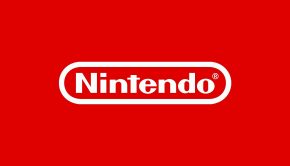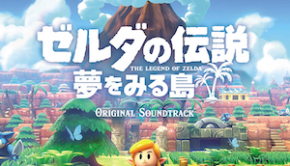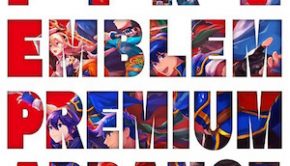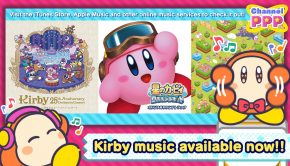Ryo Nagamatsu Profile
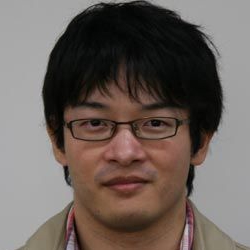 |
Also Known As: 永松 亮 (ながまつりょう) |
| Date of Birth: October 25, 1982 (Japan) |
|
| Residence: Kyoto |
|
| Game Works: Nintendo Land, Wii Sports Resort, A Link Between Worlds |
|
| Official Site: Nintendo |
History
| Organisation | Type | Tenure | Role |
| Nintendo EAD | Game Developer | 2006 – | Composer |
Biography
A relative newcomer to Nintendo EAD, Ryo Nagamatsu has taken prominent roles on titles such as the Mario and Wii Sports series. Born on October 25, 1982, Nagamatsu learned to play the piano from the age of six and taught himself how to compose at high school. He was also extensively involved with his school’s orchestra and brass band as both an instrumentalist and composer. After pursuing further musical activities at university, Nagamatsu successfully applied to become a member of the sound team of Nintendo Entertainment Development and Analysis in 2006. He learned the ropes of game sound production by scoring Wii Play alongside Shinobu Tanaka. Building on Nintendo’s Touch! Generations sound, the music provided a subdued but catchy accompaniment to nine mini-games intended to demonstrate the capacity of the WiiMote.
The subsequent year, Nagamatsu composed the majority of Big Brain Academy: Wii Degree’s score under Hajime Wakai’s direction. He was able to demonstrate a little more stylistic freedom on this project; for instance, he elaborated on the childish vocal theme with instrumental passages and even integrated Japanese instruments such as the shakuhachi into some compositions He also penned a soft acoustic arrangement of the Wii Sports’ title theme for the Touch! Generations Soundtracks. After working on several casual titles, Nagamatsu received the opportunity to compose a fully-fledged game with 2008’s Mario Kart Wii. Alongside Asuka Ota, he carefully matched the gameplay with frantic compositions, while individualising each course with diverse stylings.
Marking his first project as a solo composer, Nagamatsu was asked to write the entire soundtrack for Wii Sports Resort, having satisfied supervisors on the original. He generally preserved the approach of the original game, while offering more depth and variety overall. Nagamatsu also composed a significant portion of the soundtrack for New Super Mario Bros. Wii. He captured the tone of the series with his upbeat, catchy themes for the title screen and main menu, before capturing the ambience of the different worlds with short, ambient loops. Though he initially attempted to write some large-scale themes, Koji Kondo advised him to take a more modest approach, noting that his tracks would only be used transiently in the game. While presumably frustrating, Nagamatsu respondedly constructively to such criticism and carefully considered what players would want.
Compensating for this restrictive role, Nagamatsu finally received the opportunity to final produce some large-scale tracks when Kondo invited him to contribute to 2010’s Super Mario Galaxy 2. While he only contributed a handful of tracks, many were memorable highlights in the final game, such as the bluegrass-influenced stage theme “Square Timber” and the colourful boss theme “Magma Monsters”. The artist also relished the opportunity to write the final boss theme, working meticulously on the composition and orchestration in preparation for the recording session. Having wanted to produce an orchestral soundtrack ever since joining Nintendo, he was delighted to hear his music performed by a full orchestra and chorus, and admired the professionalism of the performers.
Most recently, Nagamatsu wrote entire soundtrack for Nintendo Land, a Wii U launch title featuring mini-games based on Nintendo’s classic franchises. Throughout the soundtrack, Nagamatsu wanted to offer music that could be enjoyed by veteran Nintendo fans as well as gaming newcomers alike. The artist wrote several themes for each attraction and developed a unique tone for each. He carefully selected and arranged iconic tracks from franchises such as Mario, F-Zero, Metroid, and Animal Crossing, while also offering a few original themes to define the game. The artist also paid close attention to the production values, offering everything from authentic chiptune sounds for Donkey Kong’s Crash Course to rich orchestral samples for The Legend of Zelda: Battle Quest. Having satisfied on this project, no doubt major roles await for him on future Nintendo soundtracks.
References:
– Various Game & Album Credits
– VGMdb Discography
– Interview with Iwata Asks (English, May 2010)
– Featur with Destructoid (English, January 2013)
© Biography by Chris Greening (April 2013). Last updated on April 7, 2013. Do not republish without formal permission.
Posted on April 7, 2013 by Chris Greening. Last modified on March 21, 2014.

